Your Website is Annoying Your Customers and Hurting Your Conversions [But You Can Fix It]

Your website is probably annoying your customers right now and its not your design and how well your describe your products. Your customers are getting annoyed because they have to wait too much time to even start browsing your site. Those extra seconds in website loading time are costing you thousands of dollars. What can you do about it?
What is Site Load Speed?
Website site load speed is basically how fast your website loads for your customers. Slow websites can really hinder the experience of online shoppers especially since they expect everything to happen almost instantly nowadays.
For businesses, improving your site load speed isn’t just about not annoying your customers. You are losing sales for every extra second that it takes your website to load. You are basically wasting a good chunk of your marketing budget when people leave before even browsing your website.
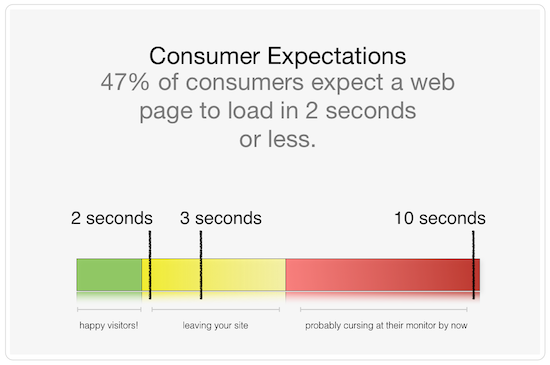
Image by Relentless Technology
As you can see, every second matters when it comes to online shopping. Most consumers will also abandon a website if its taking longer then 3-4 seconds which means you lost a sale before a customer even saw your products!
While the initial impression is critical for retaining website visitors, you also need to be aware that consumers will get frustrated if it takes to long to browse through YOUR site. Important areas such as the shopping cart and checkout are heavily impacted by site load speed. Losing someone during checkout is like being 5 yards away from a touchdown and just giving up. Don’t let website speed affect your checkout rates and your bottom line.
What Are Some Averages in the Industry?
All right, we now agree that website speed is important. Before we go on and measure your current speed, let’s take a moment to look at industry averages. Radware put together a comprehensive study looking at the load times of the top 2000 online retailers.
We can look at the top 10 retailers and their site loading speed:
- CVS.com (1.02 seconds)
- Polo.com (1.9 seconds)
- eCrater.com (1.95 seconds)
- Abebooks.com (2.05 seconds)
- BHPhotoVideo.com (3.03 seconds)
- JCrew.com (3.15 seconds)
- Amazon.com (3.26 seconds)
- ShopAtHome.com (3.74 seconds)
- Etsy.com (3.88 seconds)
- Gamefly.com (3.94 seconds)
If you want more information, check out their infographic which also contains some useful tips on improving site speed.
How Can I Find out My Site Load Speed?
It’s now time to find out how fast your website loads. There are lots of free tools out there but I recommend Pingdom. You can access the tool at the link below:
The tool is really easy to use. Simply enter your domain at the top of the page and click the “Test Now” button. The test will take a few seconds ad you’ll get a result like this:
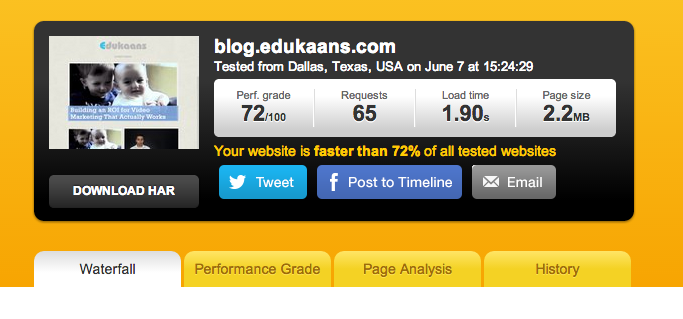
This tool also provides you with some tips on how to improve your site speed. Look at the information under the “Performance Grade” tab. The lines with the lowest score should be your priority and you can look at more information by clicking the arrow next to each grade.
Understanding Speed Improvements
Improving website speed is riddled with technical jargon. Let me break down some of the most effective ways in which you can improve your site speed. These areas also match the information that Pingdom provides you with.
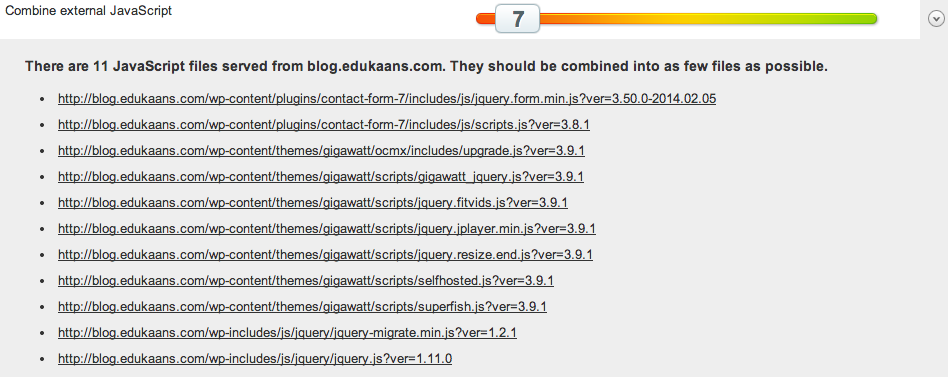
1. Optimizing Javascript files: Your website probably has lots of javascript files that you need to make everything work nicely for your customers. In our above example, we are loading 11 javascript files which is slowing everything down. We could combine all of these files into one, allowing the server to load 1 file instead of 11.
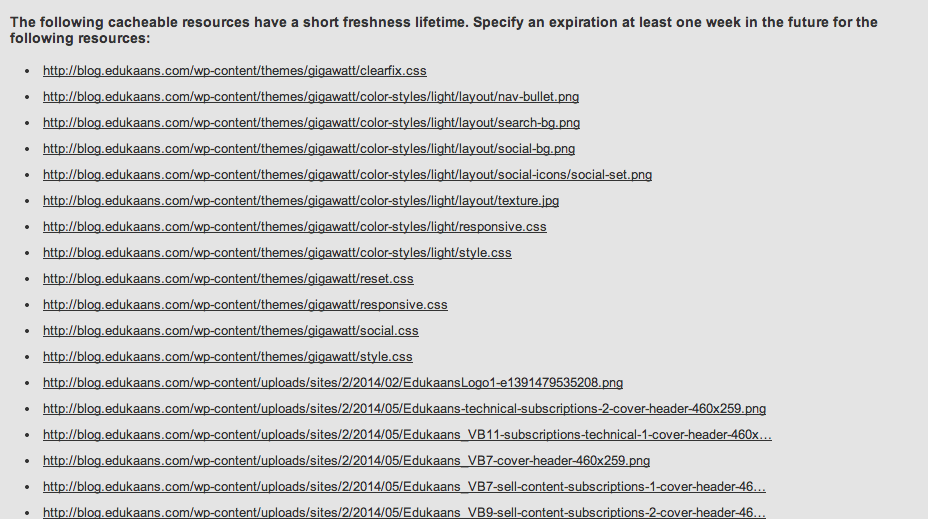
2. Using caching: Our example above also could use some caching. Caching is when you allow browsers to store certain information and allow them to reload it from their memory instead of your server. There are specific caching plugins for WordPress and other platforms. Most are quite simple to setup.
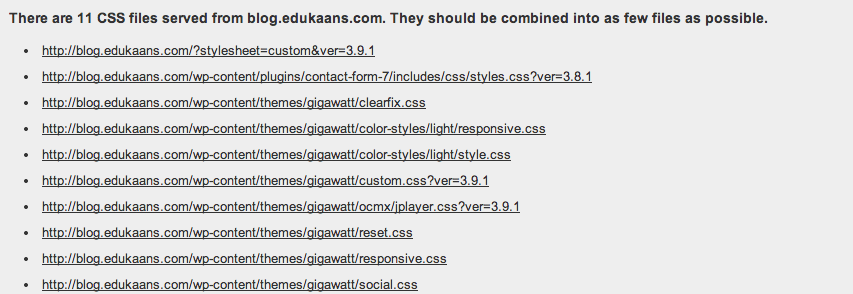
3. Optimizing CSS files: Just like javascript files, we can combine multiple CSS files into one and remove some of the load on the server.
4. Optimizing images: Finally, you should strive to optimize the images that you are using. In our above example, we could probably find a way to decrease the size of our images and decrease our site speed load time.
You can then go into more advanced topics like DNS lookups and redirects. The 4 tips above should be able to improve your site speed significantly without having to look into more advanced methods.
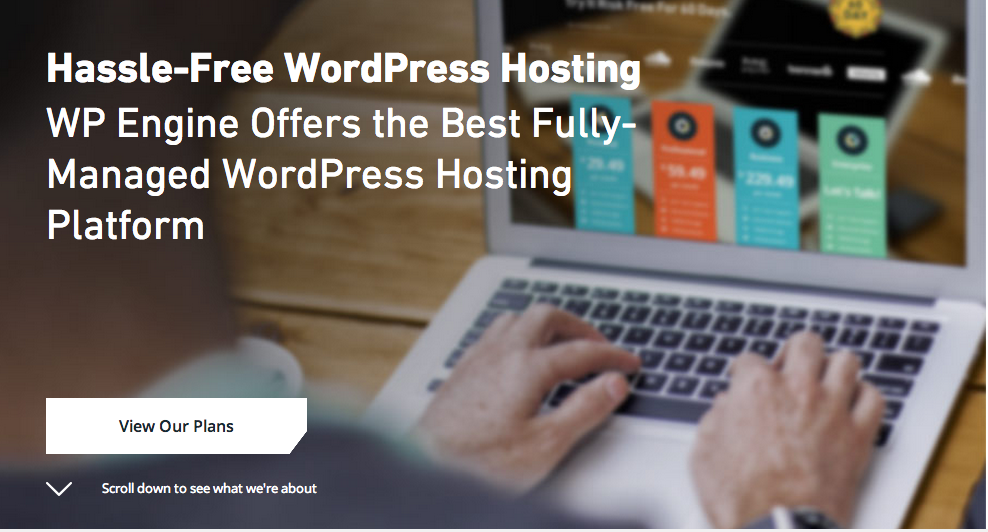
You could also look into changing web hosting. Some hosting companies are quite slow and will prevent you from even optimizing your website. There are companies who specify in certain platforms like WordPress. Wp Engine is one of these companies, focusing only on WordPress websites. These hosts can really optimize your platform and how fast it loads because that’s the only thing they deal with.
Do you have any other tips for improving your website load speed? Let me know in the comments.
First image by: Nathan Jongewaard. Licensed under CC-BY-2.0.

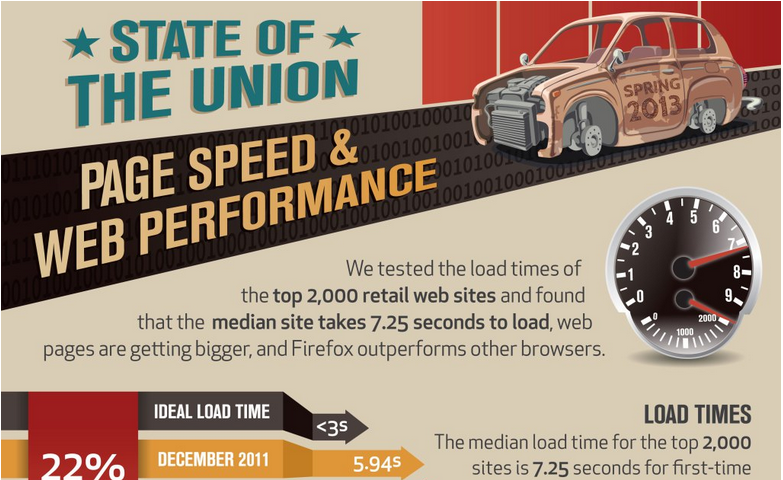





Pingback: 13 Ways to Reduce Bounce Rate and Increase Your Conversions
Pingback: Bounce Rate: What It Is And What You Can Learn From It – Lure Marketing